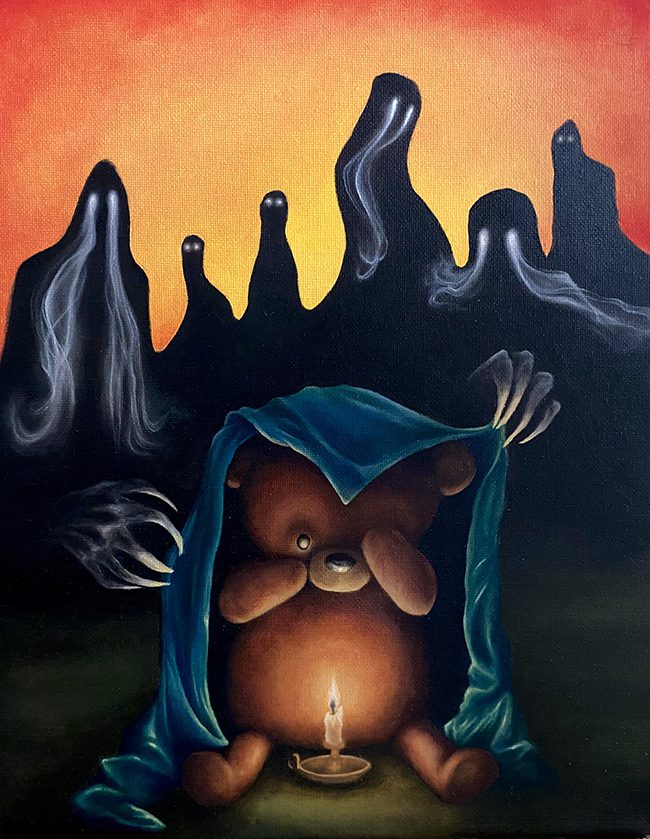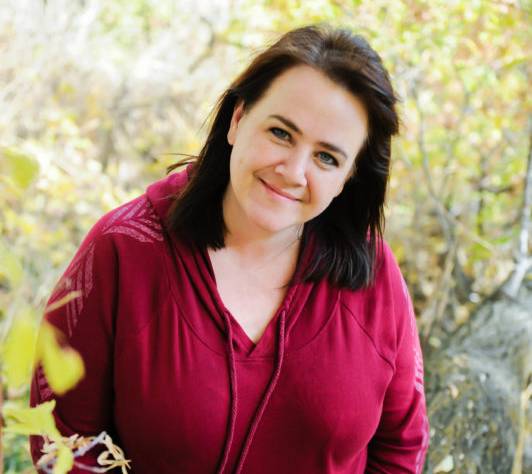

The Divine Child is characterized by an unbreakable connection to Light, Source, God, Goodness, Nature, Truth, or whatever word best suits. One doesn’t need to be religious to have this archetype, but they do have to feel a connection to some power greater and larger than themselves. They feel this connection as an early part of life experience. Because of this, the Divine Child archetype can appear as special in some way. Parents may think their child is touched by God, an angel in human form and the like. The Divine Child sees redemption in all evil. All darkness can become light, all evil can be transformed into good, the past can be redeemed, even the most heinous crimes can be reconciled and forgiven. For the Divine Child redemption is a part of their nature. Because of this, the Divine Child has a special ability to see both the good and the bad in others without judgment. They operate from a higher perspective, and this allows them to be loving and accepting of everyone.
The Divine Child has the innate ability to enter the darkest corners of society, of humanity and bring their cleansing presence to all they interact with. They are drawn to others who are struggling with depression and other emotional ailments because they know they have the power to help others. This knowledge comes from their own experience of facing their fears and transforming them into sources of strength and power. The transformation for this archetype is to step into the fear and negativity, knowing that as a Divine Child they are a source of light and goodness that will balance the darkness and the negativity. They can be the redemptive quality needed to befriend the demons and shine a light in the darkness. They can become, the power of the darkness, transformed. The Divine Child is aware of that spark of divinity that we all have, and this awareness shows others that same spark that is in them. They are reminded of their own goodness and their own light, through the archetypal expression of the Divine Child. We all have a bit of the Divine Child within but if you find yourself resonating deeply with the pattern and characteristics this child archetype may be the dominant one in your nature. Because fear is a central emotion with this archetype the Divine child has heightened senses, is keen and very perceptive. Their antennae are fine-tuned, and they notice the smallest of details about other people and situations. The Divine Child, having worked through their own darkness, becomes a haven of safety for others. It is common for others to say of the Divine Child, “I don’t feel judged by you,” and “I always feel better when I am around you.” These are indicators of the transformed expression of this archetype.
Some Keywords associated with the Divine Child
- Connected to Light
- Perceptive
- Open Hearted
- Spark of Divinity
- Redemption
- Integrating Darkness
- Non Judgmental
- Facing Fears/Courage
- Heightened Senses
- The Light in the Dark
The Divine Child has a shadow, the Fearful Child. The Fearful Child is overwhelmed by any negative force they encounter, be it criticism, violence, anger, and rejection. They are endlessly seeking safety and security, emotionally and physically. They are afraid of anything that is deemed negative, sadness, grief, heartbreak, and death. These are emotionally unsafe places. They prefer to focus only on the good, in others and in all things. They aren’t comfortable with idea of evil, and that denial makes them vulnerable to abuse and being taken advantage of. It also makes them very hard on themselves as they are avoiding their own “bad side.” They don’t want to look at the part of them that can be cruel, conniving, and malicious. They want to maintain a kind of purity throughout their life, and others refer to them as kind or good hearted. They pride themselves on their sensitivity and goodness. “They wouldn’t hurt a fly.” But they are utterly denying the truth of their own potential. The Fearful child is either overly optimistic or highly pessimistic. Either extreme is an avoidant tactic.
The Fearful Child hides from anything that looks “dark.” To combat the feeling of impending doom, the Fearful Child can become a negative thinker, a complainer and always seeing the bad side of things. This is an attempt to outpace the fear. It is a form of hiding from what you are most afraid of, the fear that you are not redeemable. That your flaws and your weakness are a permanent stain on you. The Fearful Child usually doesn’t like scary stories, horror films, violence of any kind, or even suffering. Any kind of suffering is avoided by the Fearful Child. They are afraid of being overcome by negative forces. They often feel that negative things affect them more deeply than others, that they are more sensitive than others, but they are living from fear and that fear magnifies and amplifies their experiences. Because fear heightens the senses, they can be suspicious, unreasonable and in worst cases even paranoid.
The Fearful Child is unable to face their fears and negative forces of the world because they have not faced the darkness that lives within them and this keeps them feeling trapped, small, vulnerable, and reactive. The Fearful Child can only hope and pray that they can keep outrunning the darkness not realizing they are the darkness as well and they cannot eliminate themselves without destroying their own light. This is the challenge for this archetype. Face your fears and bring the power of redemption to yourself and you will be a light in the darkness for others. If you avoid your fears, run from them, hide your own light you will never transform, no matter how justified you think your behavior is. The shadow side will think avoidance and only exposing yourself to good and light things will end the fear, but the opposite is true, only when you discover that you are both the darkness, the very antidote to the darkness, will you no longer be afraid.
Some Keywords for the Fearful Child
- Fearful
- Reactive
- Complaining
- Pessimistic/Optimistic
- Overly Sensitive
- Denial
- Avoidant
- Self-Pressure
- Negative Talk
- Security Focused
